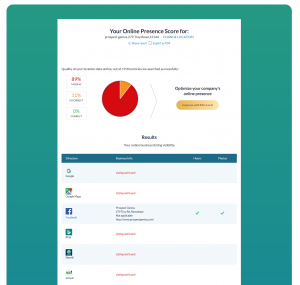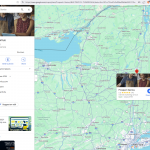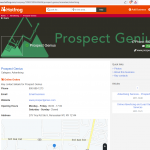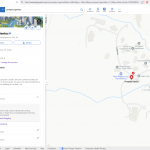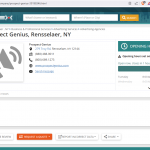You’ve probably heard the latest online marketing “trick”: geotagging your photos. The pitch is simple: add location data to your pictures (like where you took that shot of a fixed pipe or a new deck), and Google will magically push your business to the top of local searches like “plumber near me.” Sounds like a silver bullet, right?
Wrong. It’s a myth. Geotagging isn’t going to make or break your online success. It’s not bad, it’s just not worth your time. Let’s bust this myth wide open, figure out who’s pushing this nonsense, and get you focused on what actually brings in customers.
What’s Geotagging, Anyway?
Geotagging means adding your location info to the meta data of your photos. Most phones these days will automatically add the latitude and longitude of where you are when you take your photos and stick that information into the file’s meta data. The idea is that Google sees this and says, “Oh, this electrician works in [Your Town]!” and bumps you up in search results. It’s being sold as a fast, easy way to win at local search. But here’s the catch: it barely moves the needle, and you’ve got better things to do.
Where’s This Hype Coming From?
I know that you’re busy fixing sinks, mowing lawns, or wiring houses, so you might not have time to dig into why this keeps popping up. Here’s the scoop:
- SEO “Experts” Want Your Money: Some marketing companies and so-called gurus on TikTok or YouTube push geotagging as a must-do trick. They’re selling you tools or services, and this sounds fancy enough to hook you. They don’t care if it works, they just want your cash.
- Your Buddy at the Bar Said It Worked: Ever hear a fellow tradesperson swear they geotagged a photo and got more calls? Maybe it happened, maybe it didn’t, but chances are something else (like a new review) did the heavy lifting. Word spreads, and suddenly everyone’s jumping on the bandwagon.
- Old Advice That Won’t Die: Years ago, little tricks like this might’ve helped with Google. Not anymore. But outdated tips keep floating around online, confusing busy folks like you.
The truth? This hype preys on people who don’t have hours to mess with marketing and just want a quick fix. Sorry, but geotagging isn’t it.
Busting the Myth: It’s Not Wrong, Just Useless
Here’s the deal: geotagging your photos won’t hurt your business. If you’ve got a spare hour and love fiddling with your phone, go for it. But don’t expect it to flood your inbox with leads. Why?
- It’s Super Easy to Fake: Anyone can change a photo’s location data in seconds. Snap a pic in Ohio, edit the file on your phone or computer, and tell Google it was taken in Florida. No special tools needed. Google knows people can lie like this, so it doesn’t put much stock in geotags. Why trust something that’s so easy to fake?
- Google Doesn’t Care Much: Google’s smart. It already knows where your business is from your Google Business Profile (that free listing you set up with your address). A geotagged photo might add a tiny hint, but it’s like whispering in a thunderstorm. Google’s listening to louder stuff.
- Your Time’s Worth More: Say you spend 10 minutes tagging every job photo. That’s an hour a week if you do six jobs. What’s that get you? Maybe one extra person finds you in a random image search. Maybe. Meanwhile, you could’ve called a happy customer for a review that actually boosts your rank.
Studies back this up. One test with lawn care businesses showed geotagging helped a tiny bit for “near me” searches in super-specific spots, but it didn’t help (and sometimes hurt) for bigger city searches. Google’s own experts say it’s not a game-changer. Bottom line: it’s a weak signal, drowned out by the stuff that really counts.
What Should You Do Instead?
You’re not here to waste time on overhyped tricks. You want more calls from local customers. Focus on these instead:
- Fix Up Your Google Business Profile: Make sure your address, phone, and hours are right. Add a few good photos (no geotagging needed, Google knows where you are). This is your online storefront so keep it sharp.
- Ask for Reviews: A handful of 5-star reviews from real customers beats 1,000 geotagged photos. Text your last happy client and ask. Takes five minutes, works like magic. Better yet, sign up for ReviewStream and we’ll do it for you!
- Post About Your Work: Share a quick pic or story about a job on your Google profile or a basic website. Say, “Fixed a leaky faucet in [Your Town] today!” That tells Google and customers where you are, no fancy tags required.
These take less time than geotagging and get you way more bang for your buck.
The Verdict: Skip the Geotagging Hype
Next time someone tells you geotagging’s the secret to crushing it online, smile and nod, then get back to work. It’s not a scam, just a distraction. You’ve got pipes to unclog, wires to fix, or lawns to mow. Leave the photo-tagging to the influencers and focus on what brings real customers through the door.

